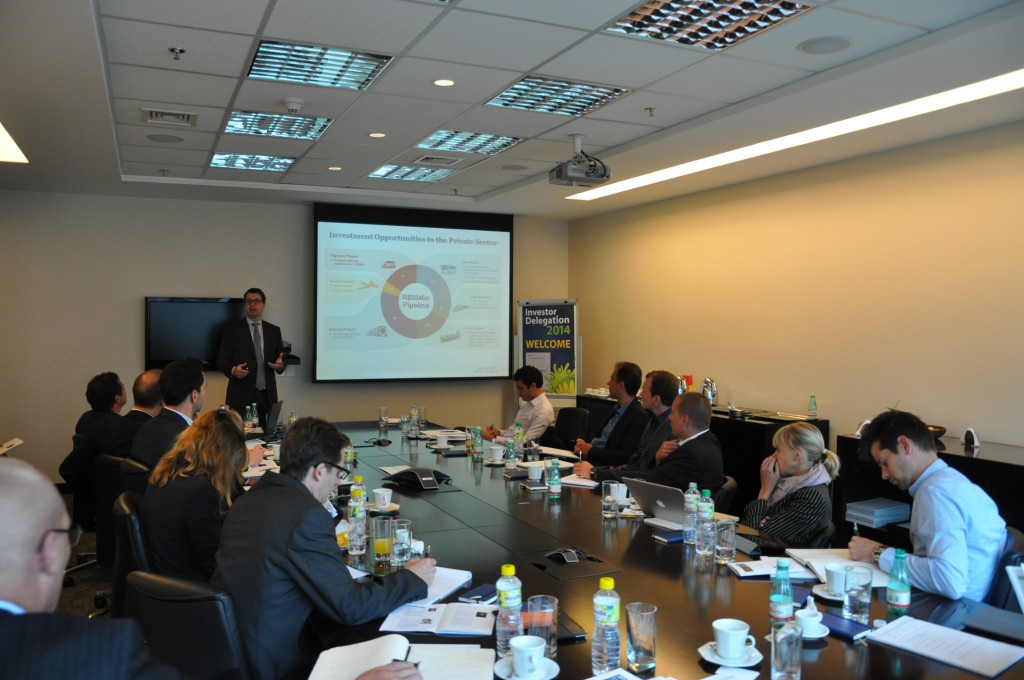Dear Investor,
To share our enthusiasm for investing in Latin America, we took off last Sunday with a group of investors and curious people on a thorough fieldtrip to Brazil and Chile. First stop: São Paulo. The ultimate goal: make this market more tangible for European investors.
In order to get acquainted with the private equity landscape in Brazil, we have been immersed on Monday into a full day of theory. While being hosted in the stunning offices of Mayer Brown, we were spoiled and boiled by the cream of the crop in Brazilians financial sector.

Nine impressive speakers later, all with impressive MBA’ s from Stanford, Harvard or Yale, the given top down approach provided insight in the vast amount of opportunities and the exciting times this emerging country of 200 million inhabitants is currently facing. Rather than reading European papers, they provided a more colored view on this economy, but also one that comes from within. Top professionals like the head economist of Patria Investimentos (http://www.patriainvestimentos.com.br/), the CIO of Vale’s Pension Fund and Advent’s Managing Partner (http://www.adventinternational.com/) are directly experiencing the opportunities and challenges the country faces and are not ashamed to point out the weaknesses and proud to share the strengths.
Since 2009, when Brazil hit the world stage with a series of successes, the macro-economic picture today seems less bright. But if you look a bit closer, the macro-economic climate for private equity success in the long run is very promising. Moreover, now when it’s less hot and hyped, the market is more attractive to enter. A consolidated democracy, the world 6th largest economy, maturing capital markets, infrastructure opportunities and the emerging middle class are tasty ingredients for savvy investors.
Politics in Brazil don’t always seem to be very effective and it seems to be “bon ton” in European press to share news and pictures of a burning bus after a loss in the semi-finals of the World Cup to illustrate the lawfulness and the unrest in the country. A quick Google search with “hooligans, England and pictures” as key words however shows that this is maybe something that is not unique to Brazil. Our speakers re-emphasized the political themes (education, healthcare, corruption and infrastructure) that need to be addressed, but also focused on some less visible but very sound governmental initiatives. They pointed out for example efforts to facilitate IPO’s of SME’s (Bovespa Mais: http://www.bmfbovespa.com.br/pt-br/servicos/solucoes-para-empresas/segmentos-de-listagem/bovespa-mais.aspx?Idioma=pt-br) or the creation of a FIP vehicle to stimulate foreign private equity investment (where any income and capital gains earned through and distributed by a FIP is exempted from the income tax). These initiatives create a solid legal and tax framework, worthy for international investors to take a look at.
Throughout the presentations there was one statement that kept on being repeated by almost all of our speakers “there are lots of low-hanging fruits out there, lots…” A juicy dealflow isn’t the problem apparently. Unlike the rest of the world where the word “private equity” might have a negative connotation, Brazilian entrepreneurs like it. Many realize they need capital and an extra set of specific skills to fuel their drive and desire to grow, organically or through M&A, and create value. Therefore partnering up with a private equity firm is very logical step forward.
The landscape of private equity in Brazil is still young, but evolving. You might compare it to private equity in the US or Europe in the 70’s. So far the high-end of the market with the big deals (> $ US 100 mn) has been quite developed and global players like Blackstone, Advent and Carlyle have entered, creating fierce competition for a limited number of transactions. But the mid-market private equity framework is still very much under-penetrated, making it an interesting niche to look at. And oh yes, with plenty of low-hanging fruits out there. The main challenge seems to be finding talented people to source, assist and monitor these SME’s. Human capital is a scarce resource, especially if you take into account the importance of the personal contact with the entrepreneurs. The local network and hence local presence are key to be successful in this market.
After a first deep dive into the theoretical world, a more “entrepreneurial” agenda was scheduled with presentations by 2 managing partners of mid-market private equity funds and a company visit.
In short, it has been a very enlightening introduction to Brazil. And despite a nation-wide mourning after their dramatic loss in the quarter finals of the world cup the entrepreneurial spirit in Brazil is still very thriving.
You can also endulge yourself in the (Flemish) blog of Ben Serrure, journalist at the Belgian Financial Quality newspaper De Tijd. Ben has joined in on this fieldtrip. His daily articles can be found on: http://blogs.tijd.be/zuidamerika/

